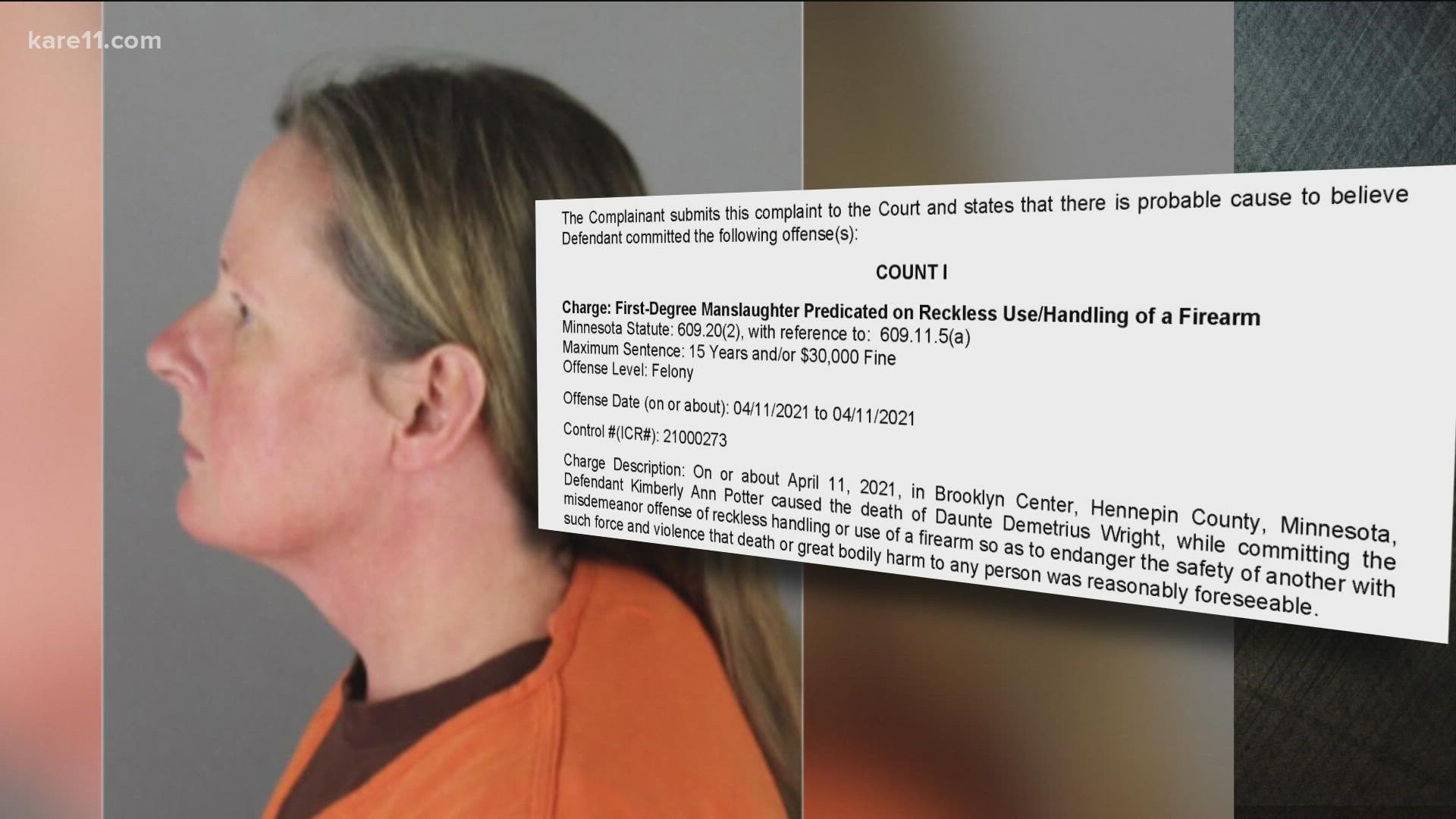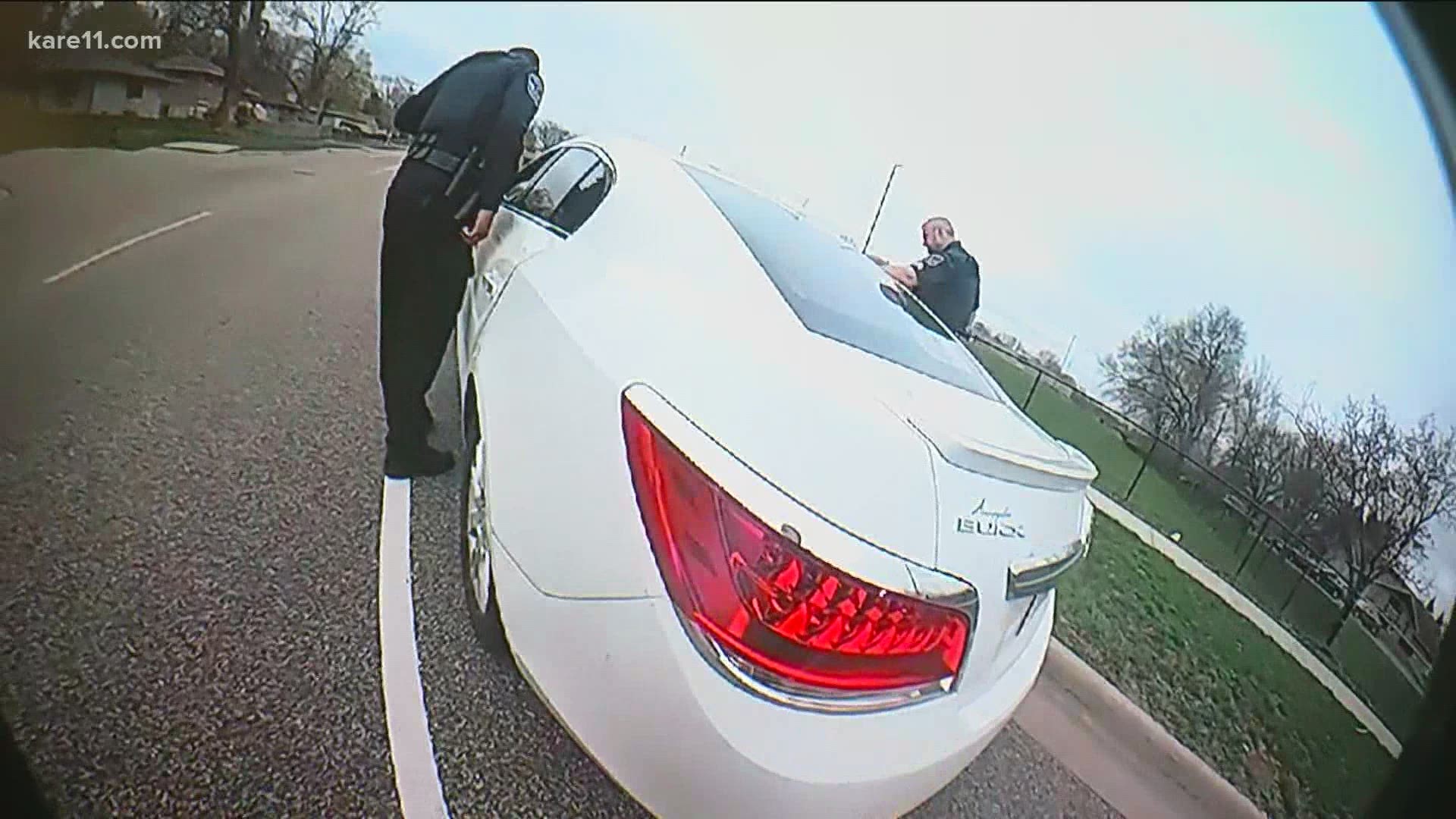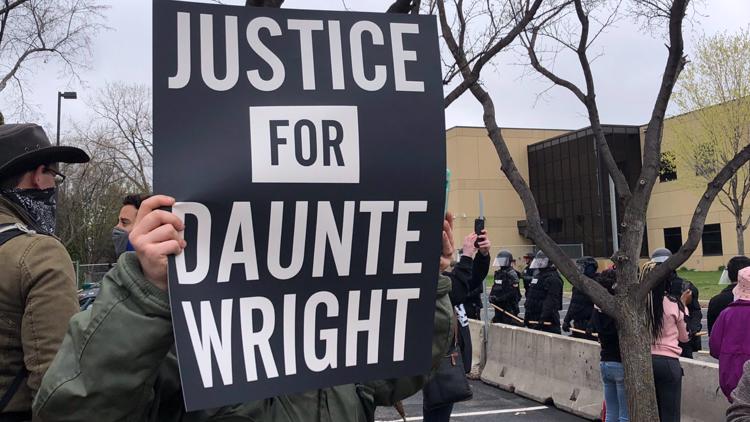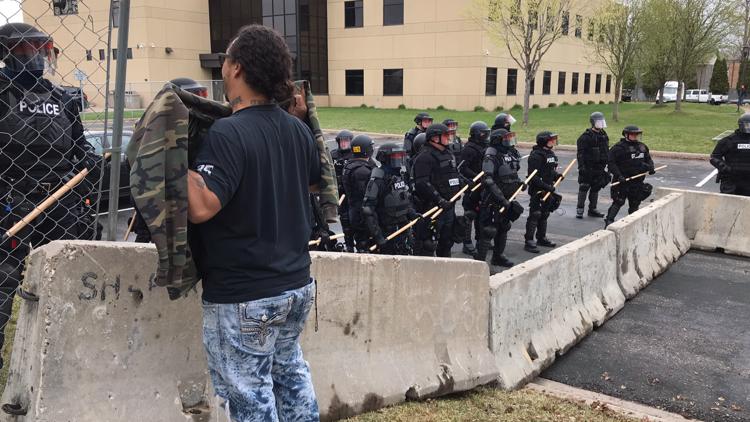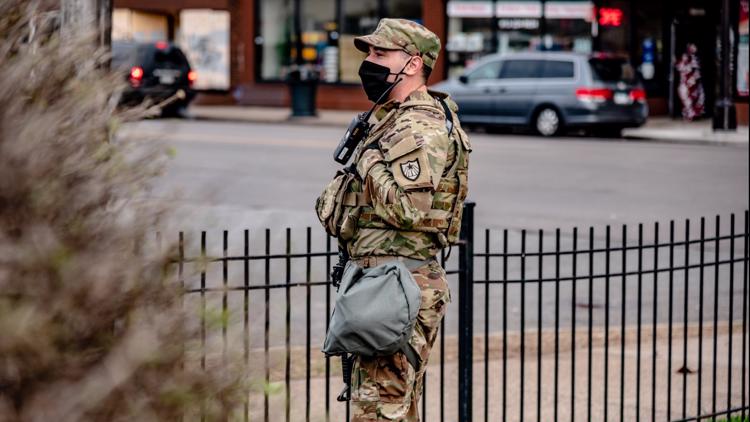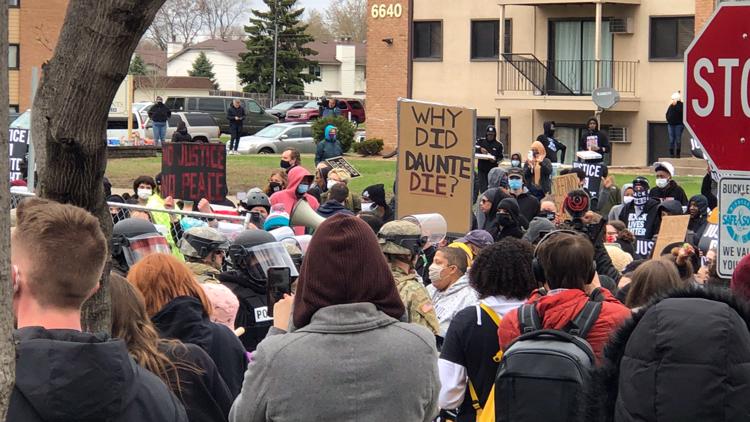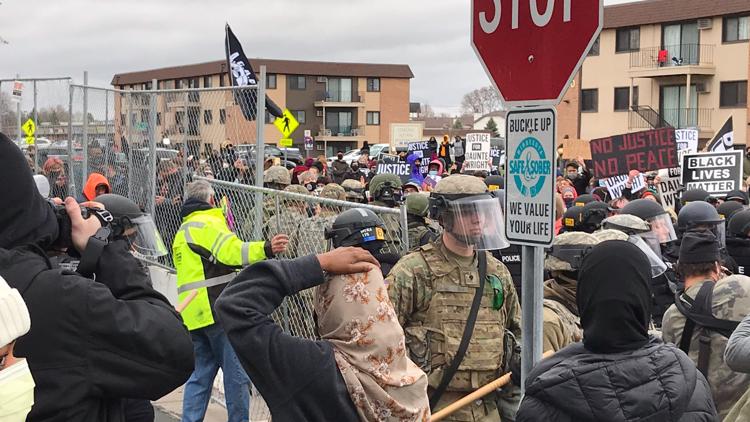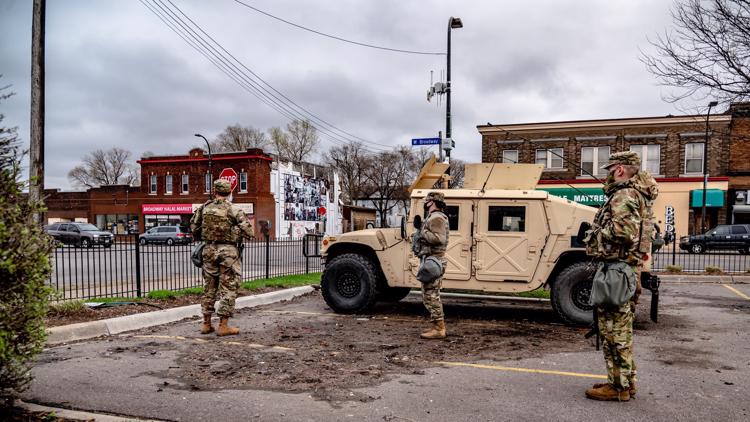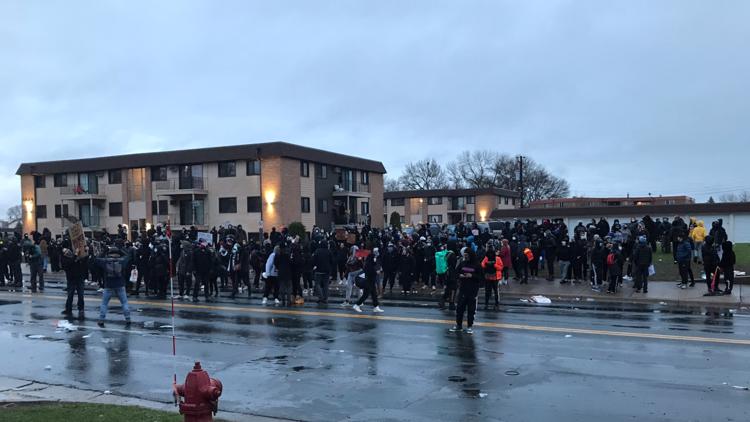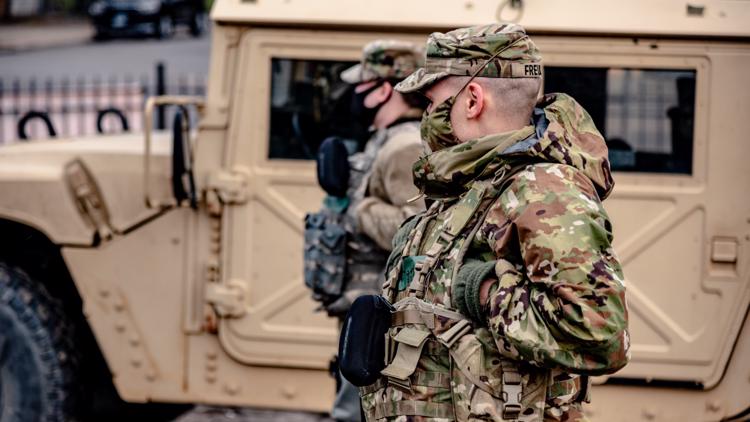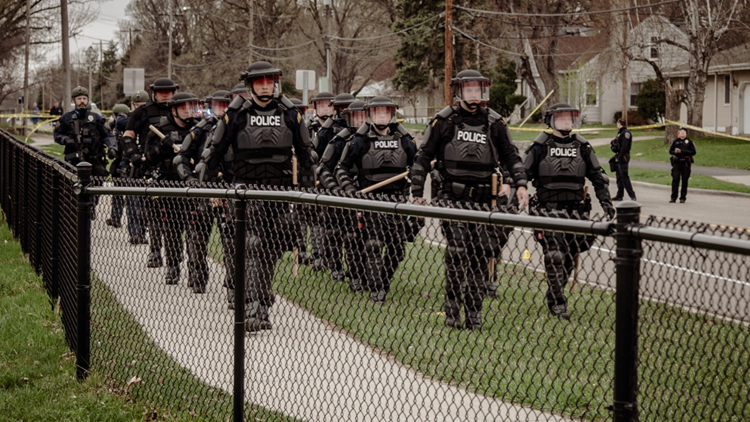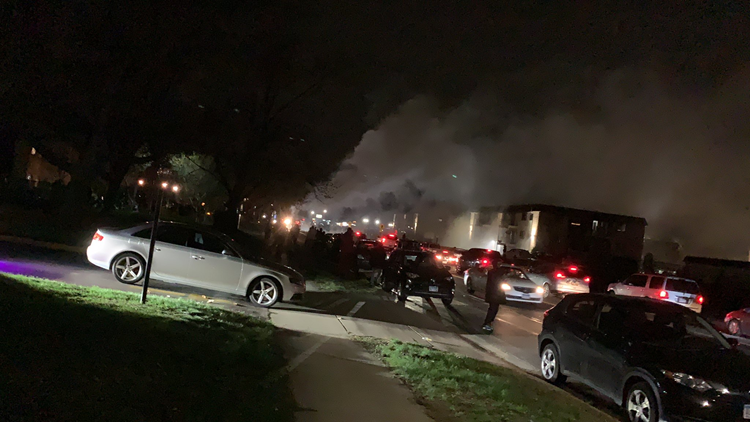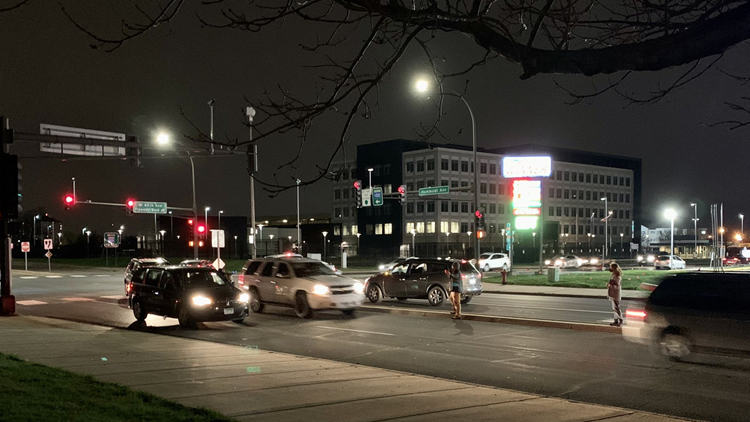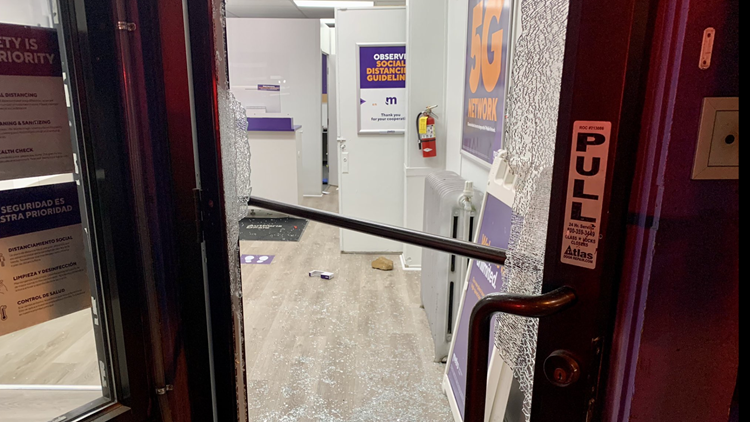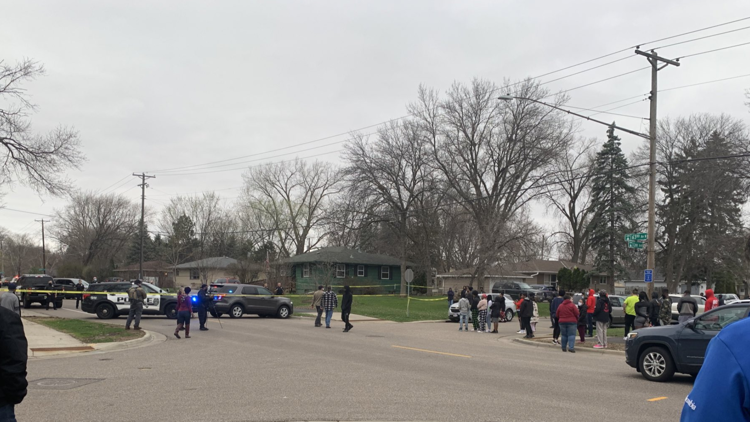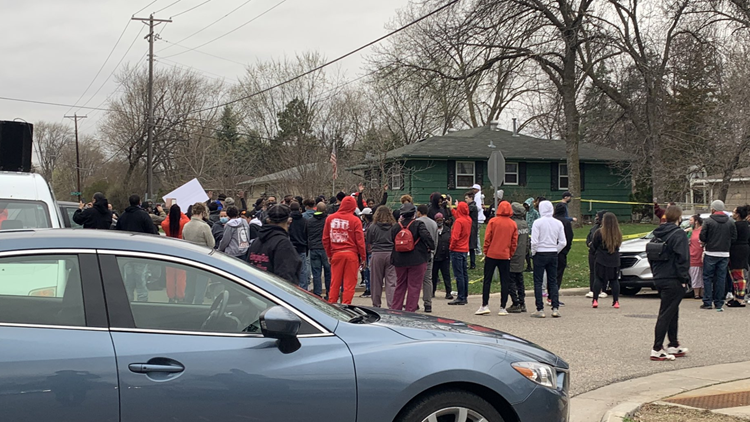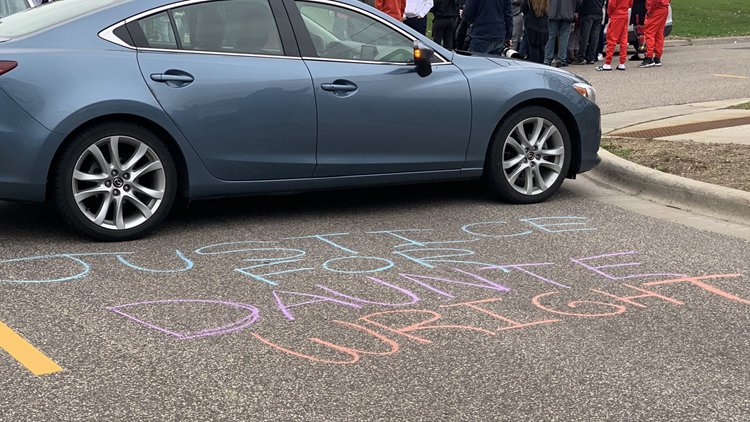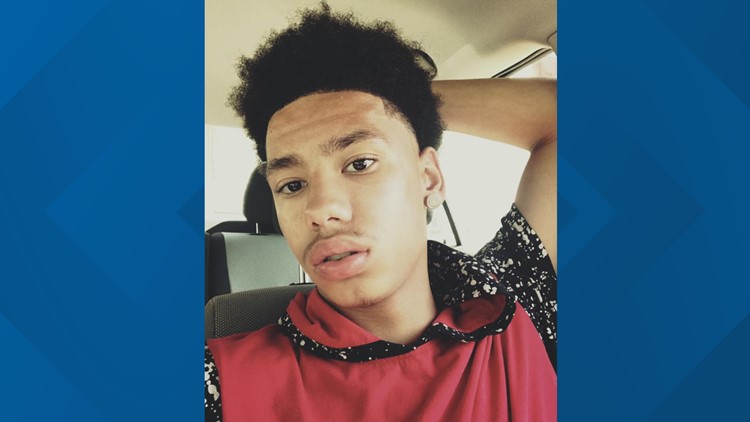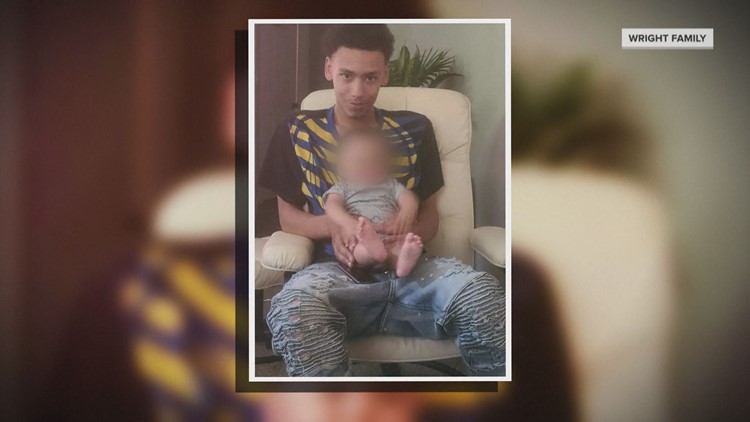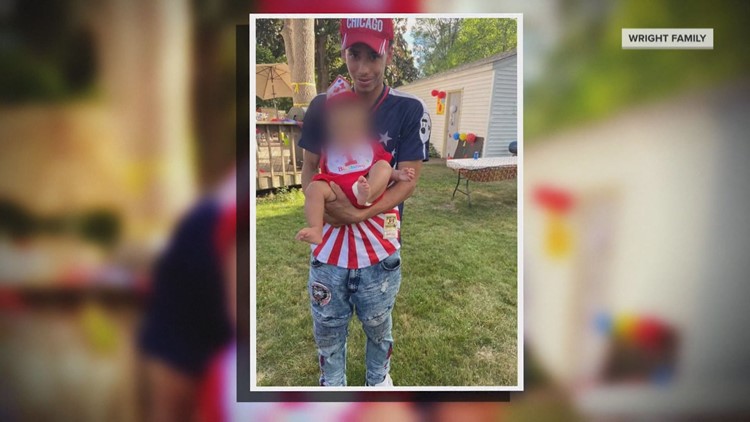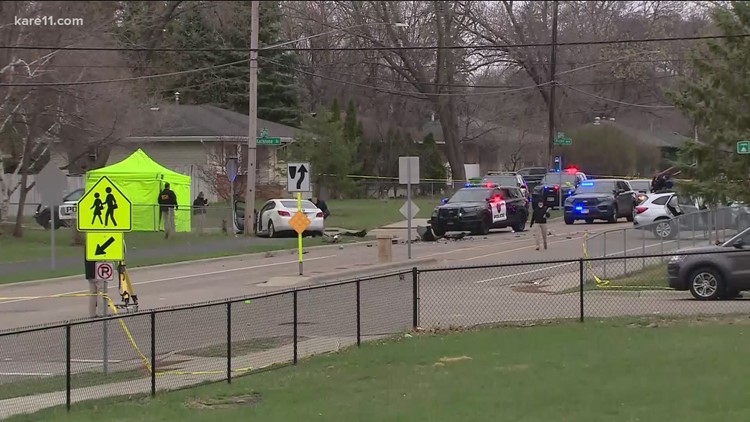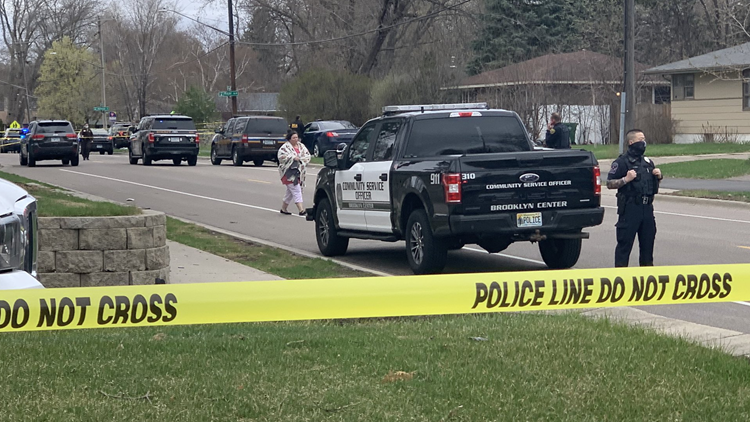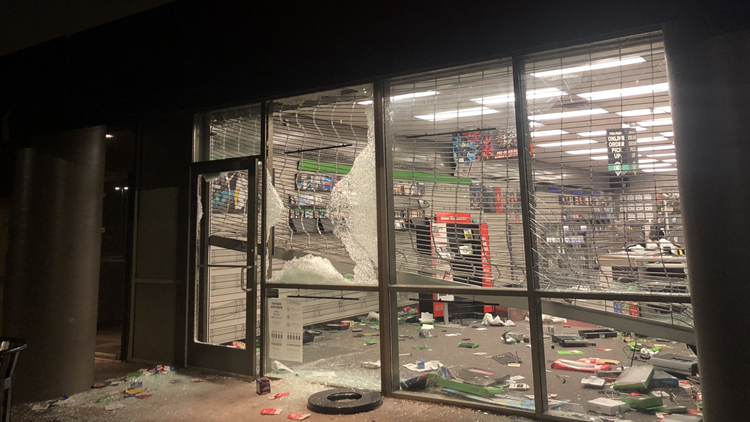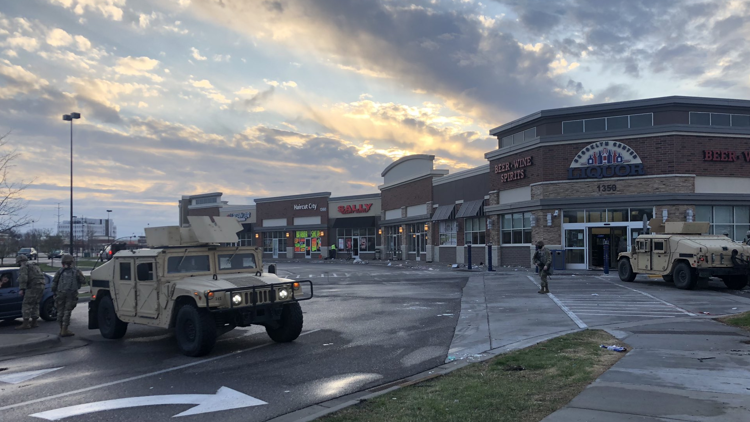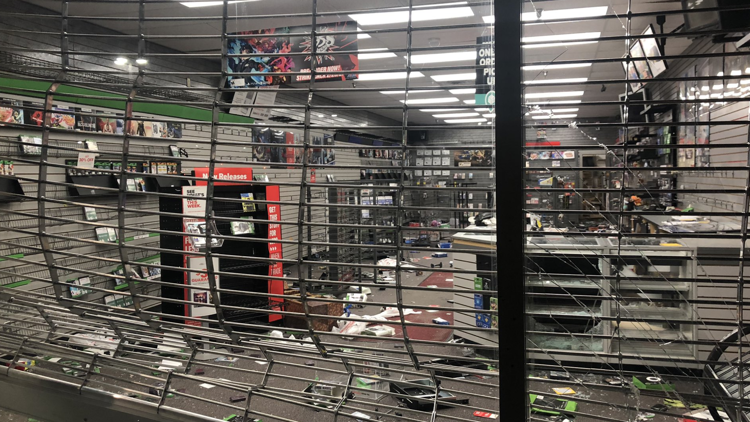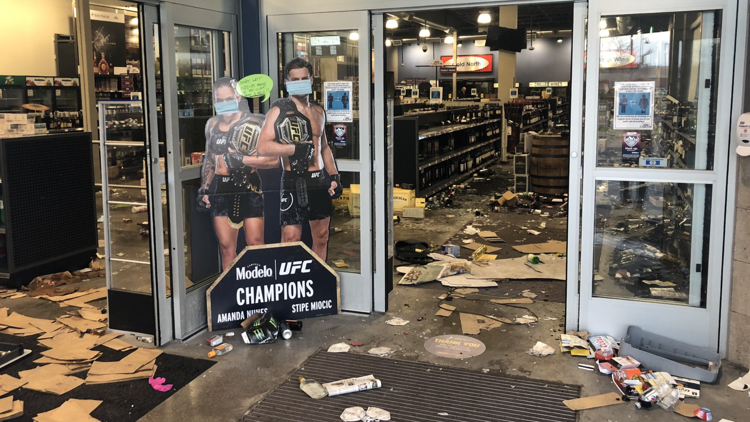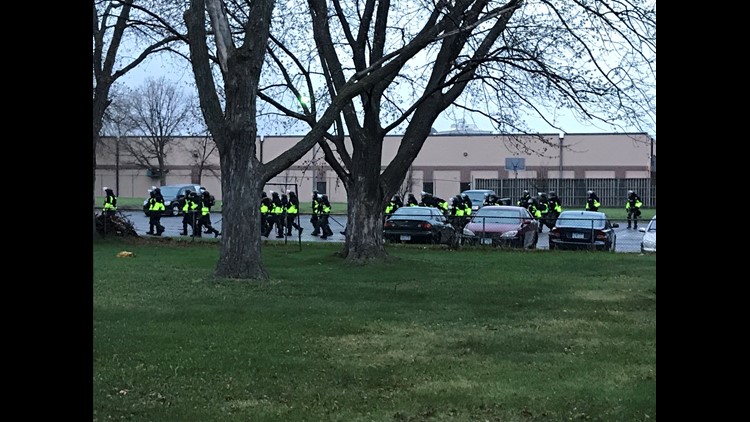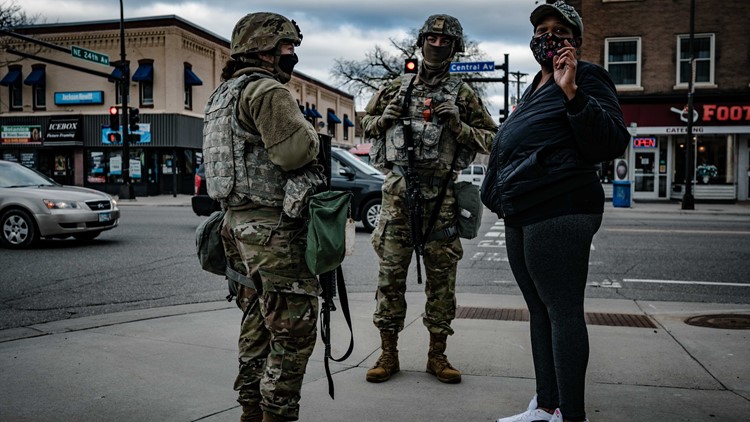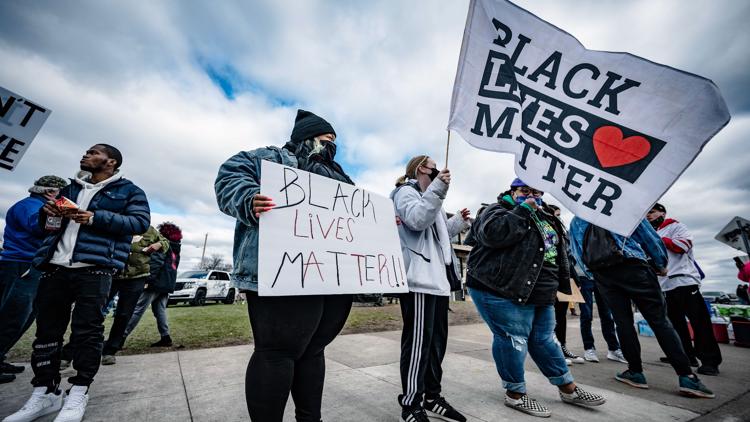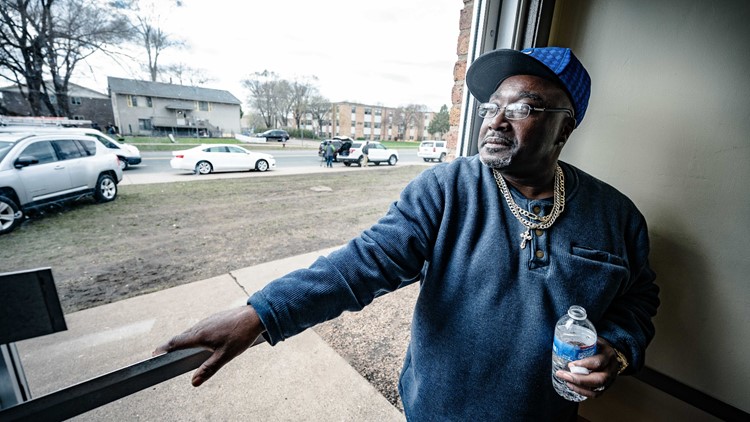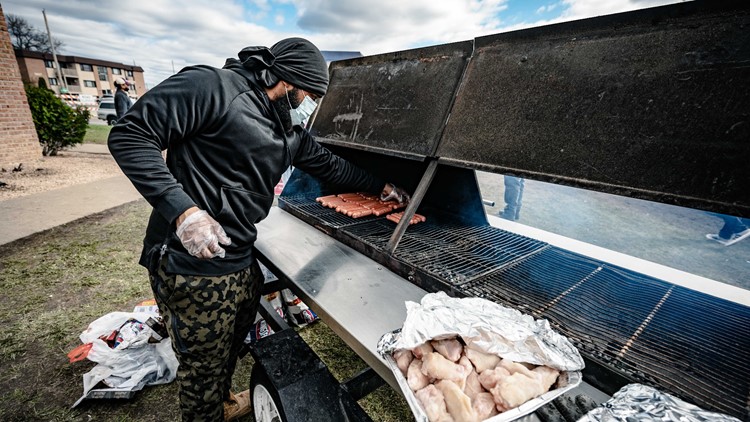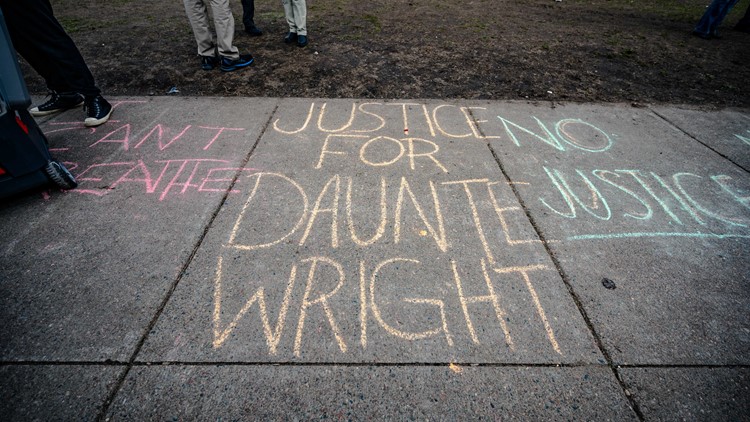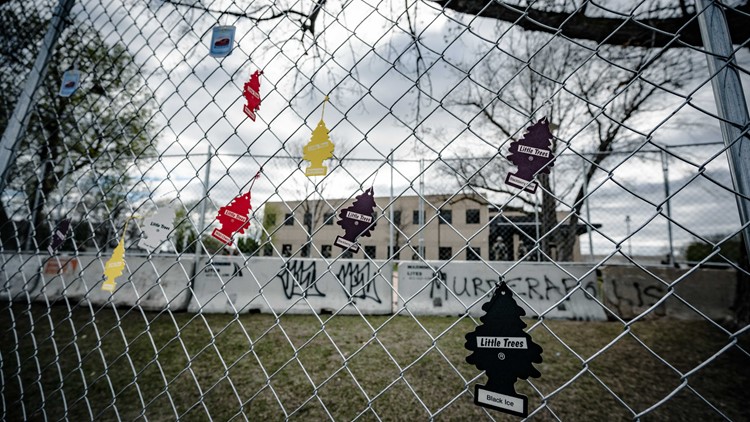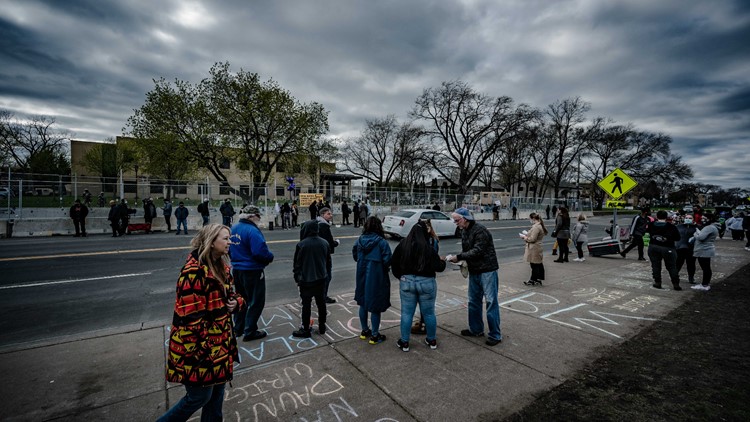BROOKLYN CENTER, Minn. — Warning: Some elements in this story, including body camera footage, are graphic. If you or someone you know have been affected by the content of recent broadcasts and are looking for mental health resources, contact the National Alliance on Mental Illness. NAMI provides guidance to those who are trying to navigate the mental health system. Please know you are not alone.
In a few weeks, former Brooklyn Center police officer Kim Potter will go on trial for the April 2021 shooting death of Daunte Wright. Police were attempting to take Wright, a 20-year-old Black man, into custody after pulling him over for having expired tabs when Potter, who is white, pulled out her gun and shot him once in the chest. Body camera footage captured the incident, and Potter later said she had meant to pull out her Taser instead of her firearm.
Potter faces both first and second-degree manslaughter charges in the death of Wright. She was initially charged only with second-degree manslaughter, which requires a finding that she acted with “culpable negligence” in Wright’s death.
Jury selection for the trial, which will take place in Hennepin County, begins on Nov. 30, 2021. Opening statements are slated to start Dec. 8.
The shooting
On April 11, 2021, Brooklyn Center officers conducted a traffic stop on the vehicle Daunte Wright was driving due to expired tags. During the stop officers obtained Wright's ID and discovered an outstanding warrant against him. They attempted to take him into custody, at some point Wright got back into his car and one of the officers fired their gun and struck him, law enforcement officials initially said.
In body camera footage of the incident an officer, later identified as Kim Potter, can be heard immediately telling the other officers at the scene, "I just shot him."
A woman in the car with Wright was taken to North Memorial Hospital. Daunte Wright's family was the first to identify him as the shooting victim.
"As you can hear, the officer, while struggling with Mr. Wright, shouts 'Taser, Taser' several times. That is part of the officer's training prior to deploying a Taser, which is a less lethal device," said then-Police Chief Tim Gannon during a press conference shortly after Wright's death. "That is done to make her partners aware, as well as the subject, that a Taser deployment will be imminent."
Gannon also said he believed the shooting was an "accident." He resigned from his position two days later on April 13.
Potter also resigned from the department on April 13, and the next day was arrested and charged with second-degree manslaughter.
RELATED: Former officer Kim Potter arrested, charged with second-degree manslaughter in Daunte Wright's death
Prosecutors later added a first-degree manslaughter count against Potter, and on Oct. 27 Hennepin County District Court Judge Regina Chu decided to allow the charge.
Rev. Al Sharpton delivered the eulogy at Daunte Wright's funeral in Minneapolis on on April 22. "We come from all over the country because you hurt one of our princes. That's why we're in this temple with purple all over, because it represents royalty," he said during the service. "You thought he was just some kid with an air freshener, he was a prince. And all of Minneapolis is stopped today to honor the prince of Brooklyn Center."
Aftermath
The night of Sunday, April 11, hundreds of people gathered at the scene where Daunte Wright was shot. A curfew was put in place until 6 a.m. Monday, but that did little to stop protesters from blocking Humboldt Avenue just south of the Brooklyn Center Police Headquarters that evening.
KARE 11 crews at the scene reported multiple rounds of tear gas were fired by law enforcement in an effort to disperse the crowd. They also reported seeing looting in Brooklyn Center, which then spread to Lake Street in Minneapolis.
The unrest escalated after police released body camera footage of the shooting. Soon after, Gov. Tim Walz declared a state of emergency with a curfew in Hennepin, Ramsey, Anoka and Dakota counties. The Minnesota Wild, the Twins and Timberwolves announced they would postpone their Monday home games.
Protests outside the Brooklyn Center Police Department Monday night escalated. More looting was reported at local businesses, and law enforcement confirmed dozens of arrests were made.
RELATED: Second night of demonstrations follow Daunte Wright shooting, Brooklyn Center officer identified
Curfews remained in place Tuesday into Wednesday.
Hundreds of demonstrators returned to the Brooklyn Center Police Department after marching to the Brooklyn Center FBI building Tuesday evening as part of a rally for Wright. That evening, law enforcement began using flash bangs and pepper spray to disperse the crowd. Law enforcement officials said some people were throwing objects, including bottles and bricks, and spraying mace at officers.
Nearly 80 people were arrested in connected to Tuesday night's protest.
Protests and unrest continued for eight straight nights following Wright's death. Hundreds more arrests were made in connection to the demonstrations and multiple businesses were looted or damaged.
Protests follow shooting of Daunte Wright in Brooklyn Center
Trial details
In May, Minnesota Attorney General Keith Ellison confirmed his office would lead the prosecution against Potter, who is being represented by defense attorneys Earl Gray and Paul Engh. Gray is the same lawyer representing Thomas Lane, one of the former Minneapolis police officers charged in connection to the death of George Floyd in May 2020. He also handled the case of Jeronimo Yanez, the former St. Anthony Police officer who fatally shot Philando Castile following a traffic stop.
In September, Potter's lawyers said there will be no guilty plea from their client, and court documents released in October show defense attorneys intend to argue that the fatal shooting was an accident.
Civil rights attorney Ben Crump is representing Wright's family. Crump's office also represented George Floyd's family during Derek Chauvin's murder trial.
Hennepin County Judge Regina Chu will preside over the case. On Nov. 6, protestors targeted what they believed to be Chu's home to demand that she allow cameras in the courtroom for the upcoming trial. At that time, cameras were not allowed during the trial.
On Nov. 9, Judge Chu issued an order allowing a camera in the courtroom during Potter's trial, citing "the fast-spreading Delta variant."
According to the court order, audio and video record, broadcasting and livestreaming will all be allowed, but only matters that are on the record will be heard. Video will allowed to be shown, on or off the record, as long as the judge is on the bench and the trial is in session, Chu's order says.
The order also explained that incident with protesters who targeted Judge Chu's home had nothing to do with the ruling.
Potter's trial will be just the second time the state has allowed cameras inside the courtroom to broadcast a criminal trial. The first happened earlier this year, for the murder trial of former Minneapolis police officer Derek Chauvin.
Jury selection in the trial of Kim Potter begins at 9 a.m. on Tuesday, Nov. 30. KARE 11 will live stream gavel-to-gavel coverage on kare11.com, the KARE 11 app and KARE 11 YouTube page.

